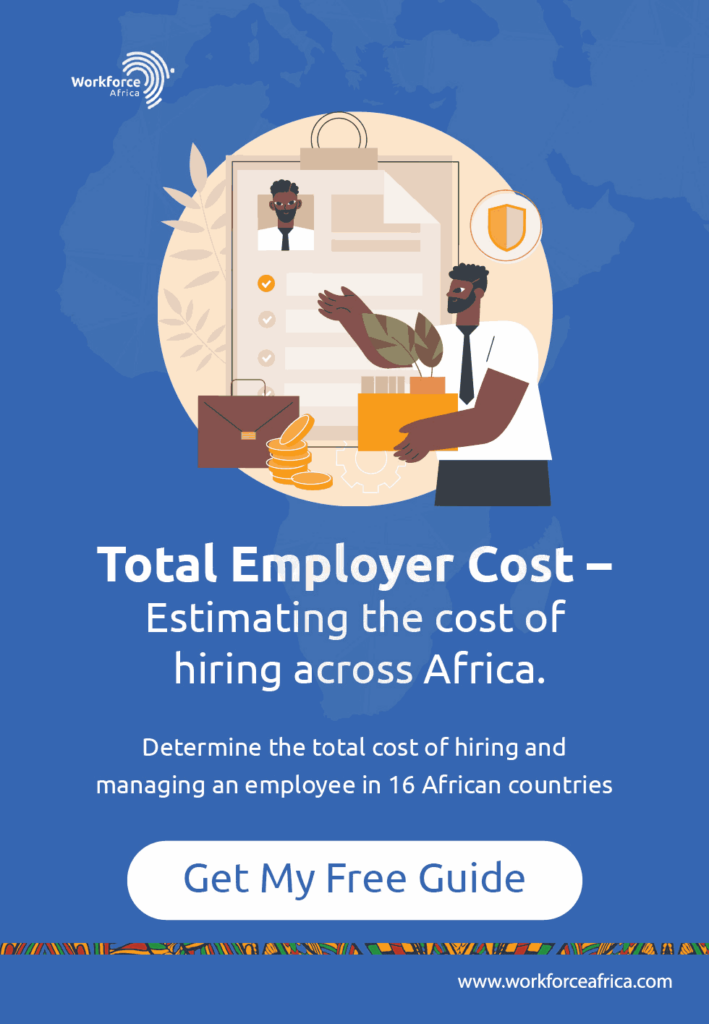
This Customer Service Week, we celebrate you — our clients. Your trust, feedback, and partnership drive everything we do. Thank you for being at the core of our mission.

Upskilling African employees is vital for business growth and holds the key to unearthing the full potential of Africa's workforce, thereby contributing to continental development.
This article delves into strategies to identify skill gaps, implement effective training programs, and foster a culture of continuous learning.
All of which are crucial steps towards realising the immense potential of Africa's workforce.
With Africa's economy rapidly expanding, the need to invest in workforce development has never been more urgent. Upskilling employees is no longer a luxury but a necessity.
By identifying skill gaps, implementing tailored training programs, and fostering a culture of continuous learning, businesses can unlock the full potential of their African workforce.
This article explores practical strategies to empower employees and drive organisational success.
Africa is experiencing rapid transformation, driven by technological advancements, globalisation, and shifting market dynamics.
To stay competitive in this advancing landscape, businesses must urgently equip their workforce with the skills to navigate these changes.
Progressive skill development is not just an option; it's a pressing necessity.
Organisations can proactively foster innovation and adaptability by investing in ongoing training and development, ensuring they stay ahead in the dynamic African business environment.
Employees with a growth mindset and the latest skills are better positioned to identify new opportunities and solve complex problems.
Moreover, upskilling employees enhances engagement, job satisfaction, and retention.
It's crucial to recognise that skill requirements are constantly evolving. What is in demand today may become obsolete tomorrow.
Therefore, organisations must implement systems to identify emerging skills and align training programs accordingly.
This driven approach ensures that the workforce remains relevant and ready for the future.
Continuous skill development is a strategic imperative for businesses seeking to thrive in Africa's dynamic environment.
Organisations can build a high-performing workforce capable of driving sustainable growth by empowering employees to reach their full potential.
Recommended Post: Creating a Total Rewards Strategy for Employees: A 4-Step Process
Ironically, while upskilling talent can be a potent tool for boosting retention and engagement, its absence or mismanagement can have the opposite effect.
When employees feel stagnant in their roles, with no clear path for growth or development, dissatisfaction can creep in.
On the other hand, when upskilling initiatives are poorly designed or executed, they can also negatively impact retention and engagement.
For instance, if training programs are irrelevant to employees' roles or career aspirations, they may feel like a waste of time.
Similarly, employees may become disillusioned without clear opportunities to apply new skills.
To fully benefit from upskilling, organisations must ensure that their programs are aligned with business objectives, employee needs, and industry trends.
By investing wisely in employee development, companies can create a workforce that is skilled, driven, engaged, and committed to long-term success.
The cornerstone of effective upskilling is personalisation, as upskilling empowers workers to tailor their learning experiences to individual needs.
A one-size-fits-all application to learning is outdated and inefficient. Organisations can maximise the impact of their development efforts by crafting tailored learning paths.
A personalised learning path begins with deeply understanding each employee's role, skills, aspirations, and learning style.
This information can be gathered through performance reviews, skill assessments, and one-on-one conversations.
Once a comprehensive profile is created, a customised learning journey can be designed.
The path should include formal training, on-the-job experiences, and self-directed learning opportunities.
Clear goals and milestones are essential, providing employees with a roadmap for their development.
Regular check-ins and feedback mechanisms should be in place to monitor progress and make necessary adjustments.
By investing in personalised learning, organisations can create a culture of constant improvement where employees feel empowered to take charge of their career progression.
It increases job satisfaction, retention rates, and an engaged and productive workforce.
Suggested Post: Top 5 Ways to Improve Employee Efficiency at Work
While upskilling is a strategic long-term solution to labour shortages, there are short-term measures organisations can implement.
One approach is to optimise existing workforce capacity through process improvement and automation.
By streamlining operations and leveraging technology, companies can enhance productivity and reduce reliance on additional staff.
Another strategy involves redeploying employees within the organisation. Assessing skill sets and identifying potential fit for vacant positions can help fill roles without external hiring.
This approach also offers employees opportunities for growth and development. Temporary staffing solutions, such as contract workers or freelancers, can quickly fix immediate labour needs.
However, it's crucial to consider this approach's long-term ramifications and potential costs.
Ultimately, while these tactics can provide temporary relief, they must address the root causes of labour shortages.
Upskilling employees remains crucial for building a sustainable and resilient workforce.
Upskilling in the workplace, especially your African workforce is an investment in the future of your business and the continent.
By prioritising employee development, you enhance productivity and innovation and contribute to Africa's economic growth.
Remember, Africa’s potential lies in its people. Empowering through upskilling your employees unlocks talent and creates a sustainable competitive advantage. Schedule a free consultation today to learn more.